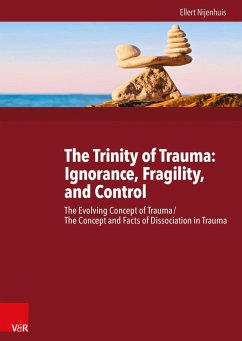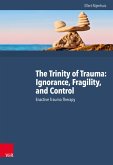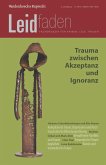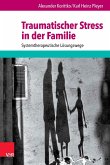The Trinity of Trauma: Ignorance, Fragility, and Control is structured as a trilogy. This book includes the first two parts: Volume I, The Evolving Concept of Trauma, and Volume II, The Concept and Facts of Dissociation in Trauma, which are predominantly conceptual, theoretical, and empirical in nature.Volume I aims to overcome conceptual flaws that have plagued the trauma field to date. It proposes new definitions of trauma and derivative concepts as well as a dimension of trauma-related disorders. It suggests that individuals and their environment constitute, depend on, and are relative to each other. Volume I unites two groups of trauma-related disorders that were previously contrasted in psychiatric history under various names such as "melancholia" versus "hysteria", "traumatic neurosis" versus "traumatic hysteria", and "posttraumatic stress disorder" versus "dissociative disorders". It also mends the "dissociation" of dissociative and conversion disorders.Volume II analyzes and defines the concepts of "personality", "self", "dissociation in trauma", and "dissociative parts". It explores and documents the biopsychosocial features of different prototypical dissociative parts in traumatized individuals. Important features of these parts also characterize other players in traumatization, stretching from perpetrators to society at large.
Dieser Download kann aus rechtlichen Gründen nur mit Rechnungsadresse in A, B, BG, CY, CZ, D, DK, EW, E, FIN, F, GR, H, IRL, I, LT, L, LR, M, NL, PL, P, R, S, SLO, SK ausgeliefert werden.









